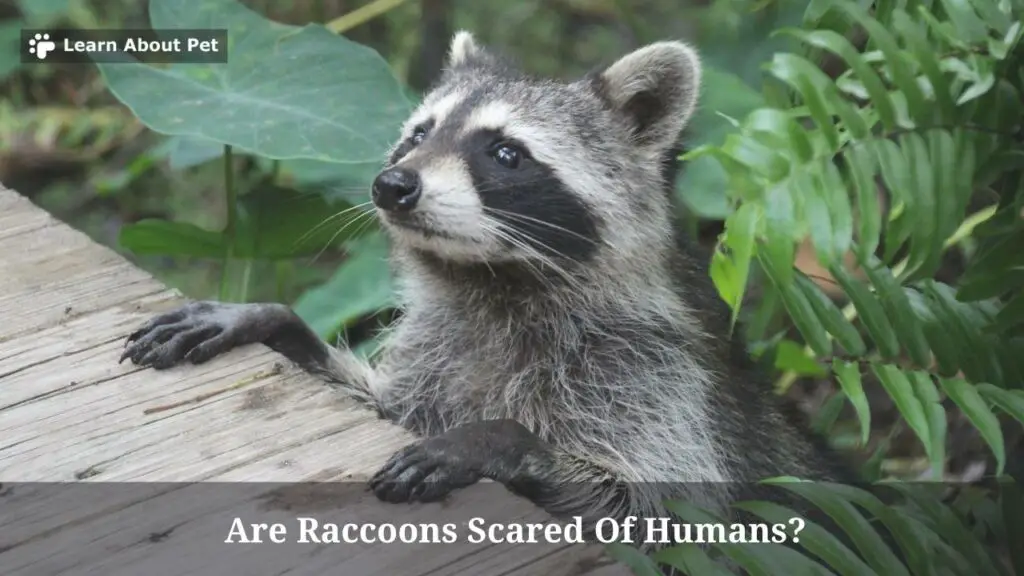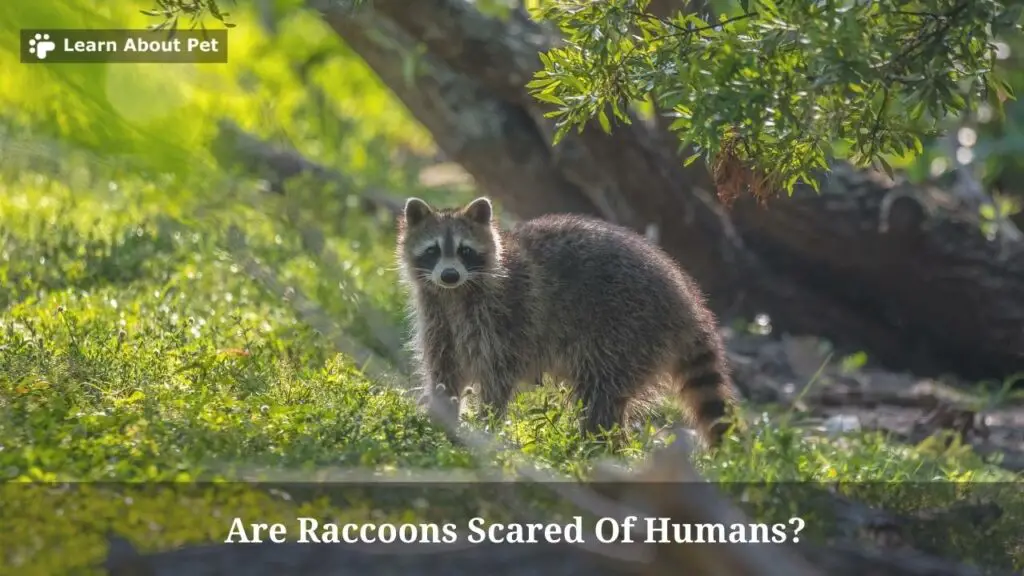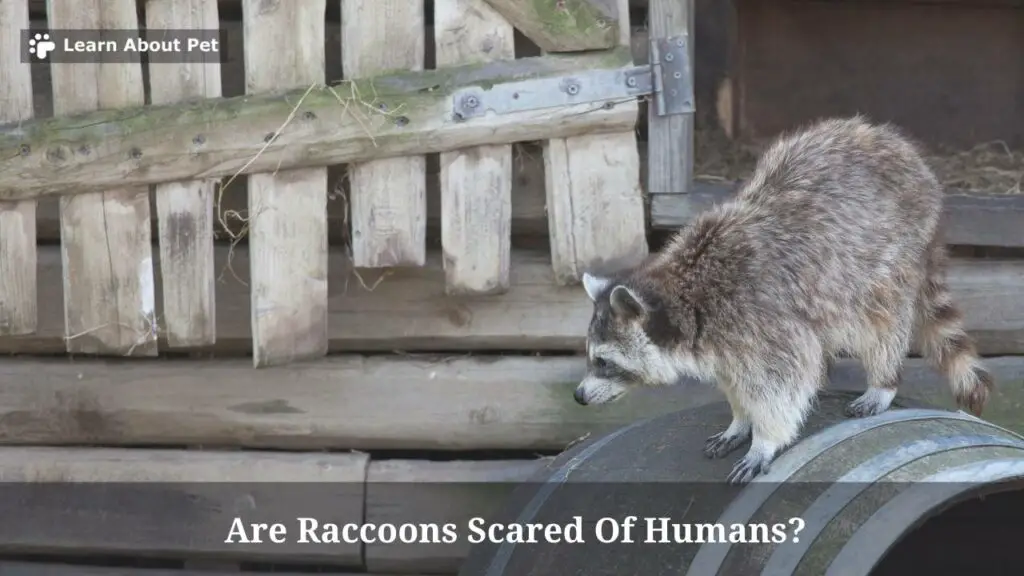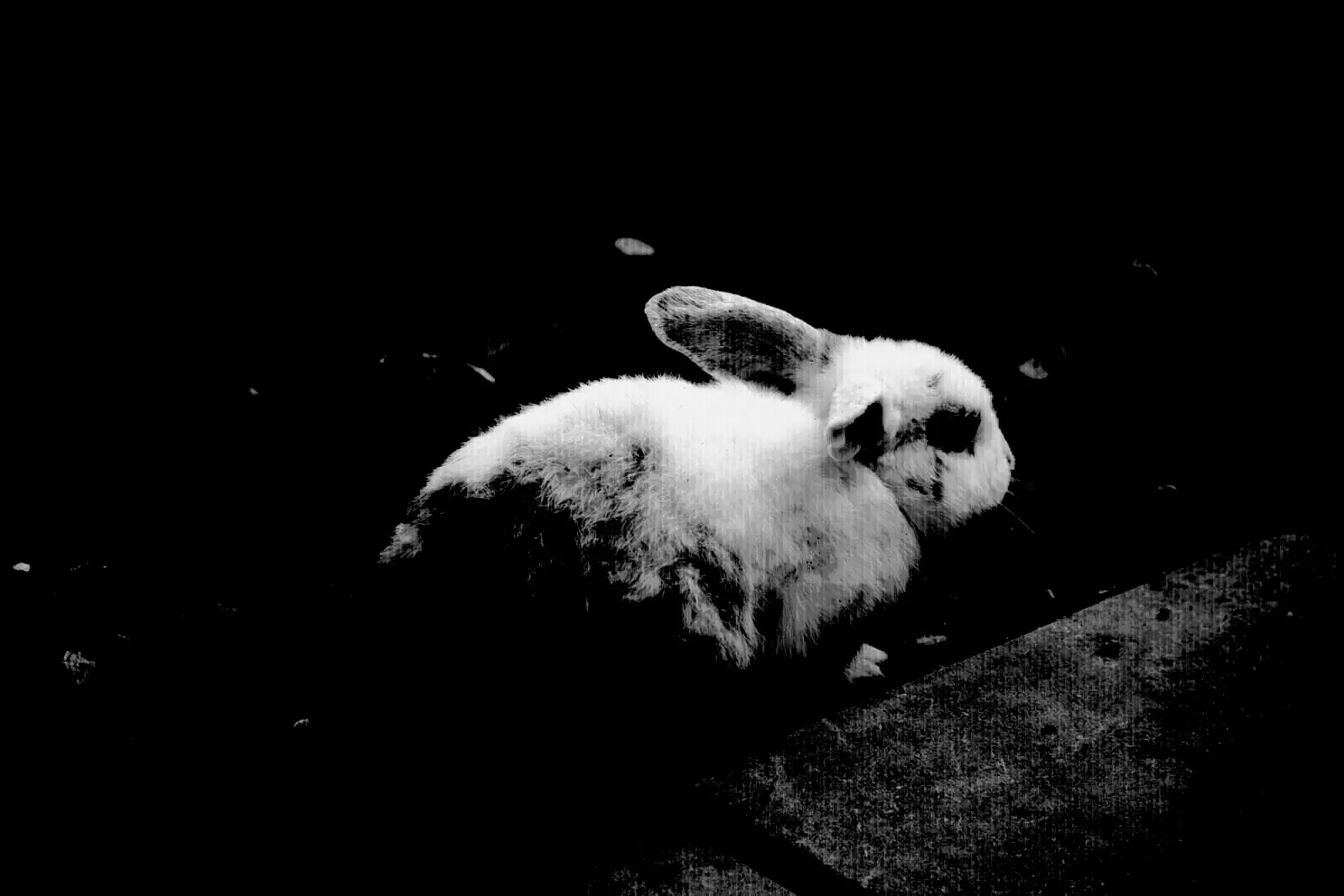If you are in an area where encounters with raccoons are common, you may find yourself being keen to know whether the raccoons are scared of humans.
The same may also apply if you are considering adopting a raccoon as a pet. This article explores that subject of whether raccoons are scared of humans or not.
Are raccoons scared of humans? Yes, in most cases, raccoons tend to be very cautious of humans, whom they perceive as big-sized potential predators. This is why the raccoons have a natural instinct to try to flee upon encountering humans.
Much though also seems to depend on how emboldened a particular raccoon is. A raccoon that is often around people may, with time, start to be less scared of them.

Upon encountering such a raccoon, you may be left wondering, why is this raccoon not scared of me? Then when you follow up, you find that it is a raccoon that has become emboldened, due to long term contact with humans.
The raccoons in places where people feed them tend to become emboldened with time. That sort of boldness can then set the stage for major human-raccoon conflict in due course.
But the natural state of things is one in which the raccoons are scared of humans.
How Do Raccoons Interact With Humans?
There are several ways in which raccoons interact with humans.
Sometimes, raccoons that are searching for food will stray into the yards around human homes. Some actually venture inside the human homes, in search of food.
There are also scenarios in which humans venture into raccoon habitats. So in this case, it is not about the raccoons venturing into human homes. It is the other way round: humans venturing into raccoon habitats.
It is also worth noting that there are some (few) people who keep raccoons as pets. So they get to interact with the raccoons in that capacity.
Some people give wild raccoons food, which according to the experts, is not right. Once people start feeding raccoons, the raccoons may start perceiving them as food sources.
This emboldens the raccoons. But since the raccoons are still wild animals, they may not always be very civil in requesting food. In due course, they may start stealing it, setting the stage for conflict with their human benefactors.
Nonetheless, that scenario (in which people feed wild raccoons) is yet another one in which they interact with them.
We may also mention that there are humans who develop a strong fear for raccoons. In fact, so common is this phenomenon that the question on what is the fear of raccoons called has become a frequently asked one.
And some sources tell us that the fear of raccoons is called agrizoophobia, while others refer to it as Rakounphobia. So that sort of fear does really exist.
And there are people for whom any sorts of interactions with raccoons are very uncomfortable, due to that fear.
Do Raccoons Like Humans?
Most raccoons are ambivalent towards humans. They neither like nor dislike them. But they are cautious about the humans: viewing them as potential predators.
Of course, there are cases in which people keep raccoons as pets. In such cases, loving relationships between the humans and the pets can develop over time.
There are also cases in which people start feeding wild raccoons. In such cases, some sorts of bonds may develop between the humans and the raccoons. But feeding wild raccoons in that manner is not advisable.
The ‘loving’ bonds that develop when people feed wild raccoons are often short-lived. Soon, the wild nature of the raccoons bares itself, infuriating their human benefactors, and sometimes causing considerable conflict.
All in all, if you were wondering, are raccoons friendly to humans, that is the answer.
Are Raccoons Scared Of Humans?
Most raccoons are somewhat scared of humans. Or, to put it differently, most raccoons are very cautious about humans.
That tends to be the case, unless the humans do something to embolden the raccoons. Emboldened raccoons may then be less scared of humans.
But naturally, raccoons are scared of humans.
The reason why most raccoons are scared of humans is because they know that humans can turn into predators. And they are not mistaken in this belief: as humans are indeed some of the major raccoon killers.
If you research on what are raccoons scared of, you may find humans in that list – alongside other raccoon predators like owls and hawks.
In spite of being cautious about humans though, some raccoons may also be curious about humans. So you find that they are cautiously curious about humans…
In places at which people take to feeding raccoons, the dynamics can change. This is how the phenomenon of having ’emboldened raccoons’ we alluded to earlier comes into the picture.
It can lead to a situation in which you find raccoons seeming to approach humans, in the expectation of food.
The whole thing then gets people wondering, why are raccoons not afraid of humans in this area? Or why aren’t raccoons scared of humans in this area?
When you investigate, you tend to find that it is because some people are emboldening them, by offering them food. And that is not always a good thing.
Now this idea –that offering raccoons food is not good is always well received. People often wonder, why can’t we be friends with raccoons by offering food?
And as we have said, the problem with offering raccoons food is that it emboldens them, which can then cause conflict.
Why Are Raccoons Scared Of Humans?
So far, we have said that raccoons tend to be very cautious about humans. But exactly why are raccoons scared of humans?
As mentioned earlier, the main reason why raccoons are scared of humans is because they view humans as potential predators.
Human beings are much bigger than raccoons. And in the animal kingdom, smaller animals tend to be naturally fearful of the much bigger ones.
So it is hardly surprising that raccoons are scared of humans, who may be potential predators to them.

Are Raccoons Aggressive To Humans?
Raccoons are rarely ever aggressive to human beings. As we have said, the raccoons are scared of human beings. It follows that they are less inclined to be aggressive to humans.
When an animal encounters another, it usually has the choice between standing its ground, fighting or fleeing.
In the case of a raccoon encountering a human, what tends to follow is flight. The raccoon will usually flee, rather than fighting the human/being aggressive.
The only case in which a raccoon may stand its ground against a human is if it is a female raccoon protecting its young offspring.
Even then, the raccoon is unlikely to be positively aggressive, only preferring to give a warning sound.
While at it, we sometimes find people asking, are hungry raccoons dangerous to feral cats and humans? And this is the answer: whereas the hungry raccoons may not be dangerous to humans, they can harm the feral cats – especially the kittens.
Do Raccoons Attack People?
The way in which raccoons are built gives the impression that they are ‘fierce’ animals.
Given that fact, we often find people asking questions like, are raccoons known to attack people? Will raccoons attack humans? Like, to be more specific, do raccoons attack humans at night?
The truth of the matter is that raccoons don’t usually have a tendency to attack people. When a raccoon encounters a human, it tends to flee away, rather than attack the person.
In a few cases, when you encounter a raccoon, it may step back and stare at you. This doesn’t mean that it is planning an attack. It is trying to read your moves, in order to figure out how best to flee…
Yes, there have been cases of people getting bitten by raccoons. But those are usually people who, as it were, bring it upon themselves – by feeding the raccoons with their hands and so on.
What Should You Do If A Raccoon Approaches You?
What to do if a raccoon approaches you depends on the nature of the encounter.
If it is an encounter in which the raccoon is likely to feel cornered, then the best thing to do is step back. This will give the raccoon some sort of space to flee, which is probably what it needs.
If the raccoon you have encountered seems to be one of the bolder ones, you may clap your hands or yell. This will serve the purpose of scaring the raccoon, whereupon it is likely to flee.
Sounds that scare raccoons include clapping and yelling, hence their usefulness in this sort of encounter.
How Can You Scare Off Raccoons From Your Yard?
If raccoons have been visiting your home too frequently, it may get to a point at which you consider scaring them.
So it becomes a question of working out how to scare off raccoons from yard or home generally.
One strategy you may use in this context is that of spraying things that the raccoons are afraid of. Stuff like cayenne pepper, garlic or onion.
While at it, one may ask, are raccoons scared of light? And the answer turns out to be ‘yes’, though motion-activated lights are likely to be more effective than normal stationary lights.
Final Verdict – Are Raccoons Scared Of Humans
Most raccoons are scared of humans. This is why, upon encountering a human being, a raccoon will typically tend to flee as fast as it can.
The raccoons view humans as possible predators, hence the reason for being scared of them.
In any event, humans are much bigger than the raccoons. And in nature, most of the smaller animals tend to be cautious of the much bigger ones.
So at the very least, most raccoons are cautious of humans.
Despite being cautious of humans, raccoons may at times also be curious about the humans.

And if people develop the habit of feeding them, the raccoons may over time become emboldened around them (the humans). That can eventually cause conflict, hence why experts advise against feeding raccoons.
It is extremely uncommon for raccoons to attempt to attack humans. Instead, they tend to flee when they encounter human beings.
The only cases in which raccoons tend to bite humans are, for instance, when people try to hand-feed them.
If raccoons have become a nuisance in your yard, there are several ways to scare them away. Those include through the use of cayenne pepper sprays, onion, garlic or using motion-activated lights.
As a pet lover, make sure to learn about pet more and give raccoons a good and comfortable life!

Welcome to Learn About Pet. My name is Rajkumar Ravichandran and I love all pets, travel, and amazing food. I write about my passion and personal experience caring for multiple pets in this blog! ❤️
Post Disclaimer
DISCLAIMER: THIS BLOG OR WEBSITE, "Learn About Pet", DOES NOT PROVIDE YOU WITH MEDICAL ADVICE AND IS NOT A SUBSTITUTE FOR MEDICAL ADVICE. ALWAYS GET IN TOUCH WITH YOUR PERSONAL VETERINARIAN AND USE INFORMATION HERE AS GENERAL ADVICE.
The information, including but not limited to, text, graphics, images and other material contained on this website are for informational purposes only. No material on this site is intended to be a substitute for professional veterinary advice, food recommendation, diagnosis, or treatment. Always seek the advice of your veterinarian or other qualified health care provider with any questions you may have regarding a medical condition or for pet food related questions.







